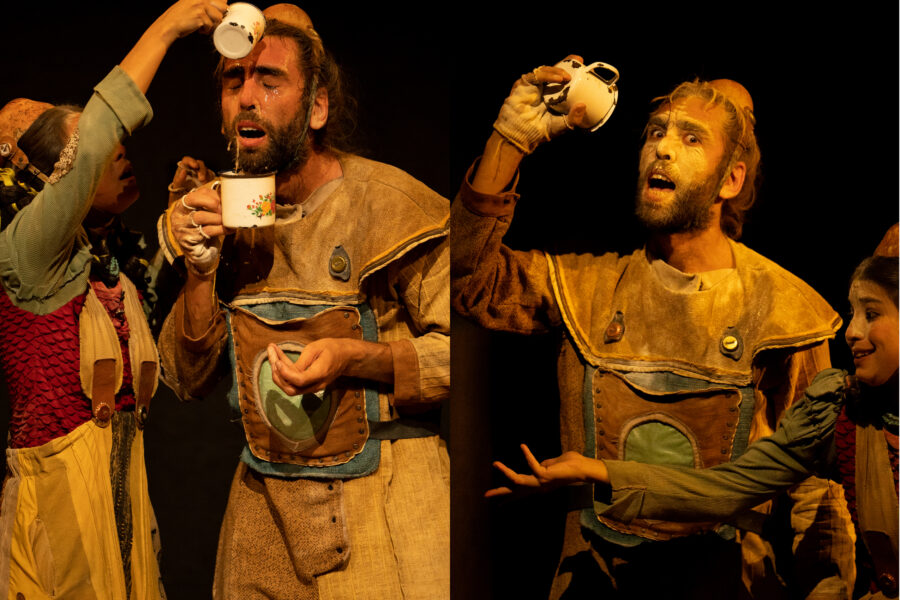Adishakti Theatre’s sixth edition of the Remembering Veenapani festival has been going in full swing, with performances by artists from around the country and abroad. One such group, Amares Teatro from Uruguay, that specialises in the Clown technique and Energetic Training from Physical Theatre, took the stage on Friday night and shed light on the scarcity of water, while enthralling audiences with their comical expressions, acrobatics, and surreal spinning.
Amares Teatro, which started its world tour in 2015, was formed to be a moving company that brings people together, says Andres Fagiolino, who performed the act at Adishakti alongside his partner Betina Dominguez. “In the art form of clowning, the fourth wall is not there, so the dialogue is open. We choose to work in open theatres, hospitals, and different venues in order to get acquainted with other realities and see how everything resonates.”
While the act is does not fall under the traditional, stereotypical clown performances, the duo says that they have adapted aspects of ‘clowning’ that deal with portraying difficult realities in the world through comedy. “Clowning is the foundation of our training but we are not bound by its limitations. We are okay if people feel this is not clowning but we try to work with the raw aspects that clowning embraces,” says Fagiolino.
“Sometimes, it is easier to laugh at a situation and then understand it, which we witness first-hand. When the show starts, it is easier for audiences to get interested in the show, if we bring in laughter. Once they get wrapped up in the comedy and open themselves up to the act, we can get deeper into the subject and bring in the deeper truths,” adds Dominguez about their act Rio, which shows two characters stuck in the midst of a drought, struggling to barely get a drop of water to drink.
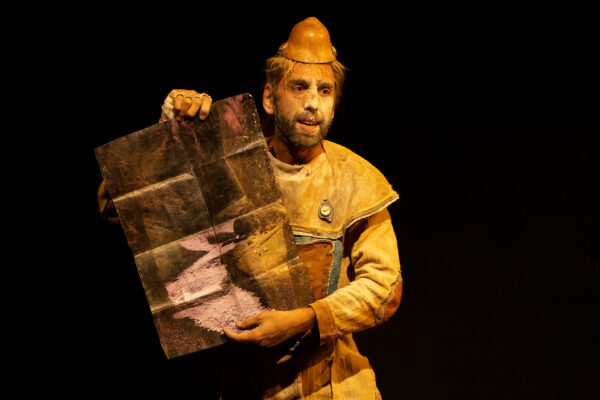
“In 2016, we were in Bolivia and there was no water, no rain for almost 10 months at the place where we lived. That is where our idea for Rio was partially conceived and we started researching it. When we toured Rio de Janeiro, we faced drought there as well. When it eventually did rain there for two months, the soil could not bear it and the entire place got flooded. Every place we went had issues with water shortages, droughts and floods. This is when we started writing Rio, by compiling the experiences we had on our journey and the stories we heard,” says Fagiolino.
While Rio was originally written and performed in Spanish, as the duo started touring more countries, they realised language would be a barrier. “When we got rid of the dialogues we decided words had to be substituted with something universal. What is universal? Water. The fights we see in the act, the running, those are universal. Things that the audience can relate to,” says Dominguez.
“The act became more of an experience for people,” notes Fagiolino. “People in the audience coughed because of the dust that we used as a prop to portray the barrenness of the land. Some felt the thirst when we were seen running around desperately looking for water in our act. That meant that they felt what the characters were feeling.”
While the first half of the act was filled with laughter, the audience also gasped in awe when the duo performed acrobatic techniques every now and then. As Fagiolino’s character stood on Dominguez’s shoulders, people clapped and expressed amazement. “We incorporated acrobatics to expand on the scope for movement and space. This adds an element of surprise and thrill in the act,” says Fagiolino.
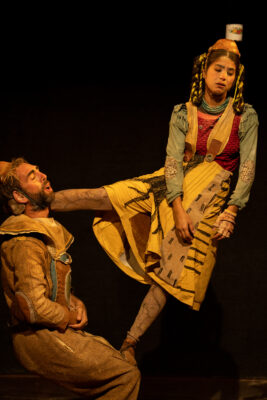
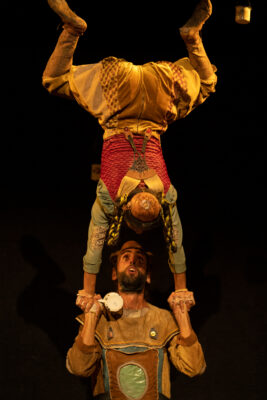
Aside from comical expressions and acrobatics, the duo also performs ‘whirling’ towards the end of the act for more than four minutes, until the curtain drops. Often seen in Sufi dances, whirling is a form of physically active meditation that is still practised among Sufi groups. “It is like a ritual of praying. When you whirl, you have to be very aligned with the seven chakras. To connect with something more than just the physical being, whirling is performed. When in the end there is no water anywhere, they realise they have nothing else to do. So, they whirl in order to pray and search for answers,” says Dominguez.
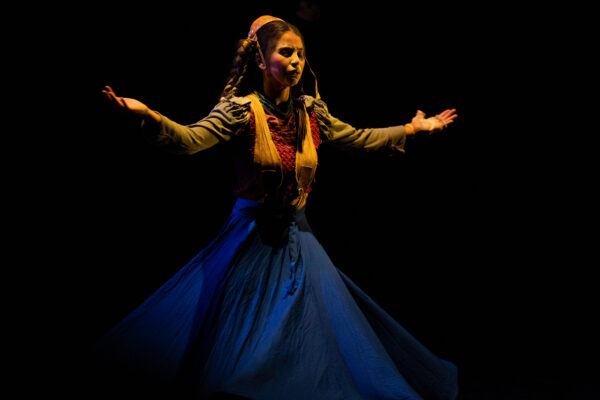
The Remembering Veenapani festival began on April 5, the birth anniversary of the founder of Adishakti, Veenapani Chawla, and it will go on till May 3.
